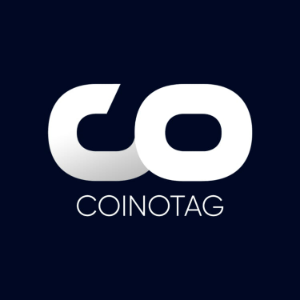Shocking ZORA Token Criticism: ZachXBT Questions Crypto Utility and ‘Vapor’ Value
5 min read
The crypto world is buzzing, and not necessarily in a celebratory way. The newly launched ZORA token is facing a wave of criticism even before it finds its footing. Leading the charge is none other than blockchain sleuth ZachXBT, whose sharp words on X (formerly Twitter) have ignited a serious debate about the token’s actual purpose. Is the ZORA token just hype, or is there something more beneath the surface? Let’s dive into the unfolding drama and see what’s causing the crypto community to raise eyebrows. ZachXBT’s Scathing Criticism of ZORA Token Utility ZachXBT, a respected figure in the crypto space known for his on-chain investigations and uncovering scams, didn’t mince words when it came to the ZORA token. He took to X to express his skepticism, labeling the ZORA token as “vapor.” This harsh criticism stems from the perceived lack of tangible utility associated with the token, especially when juxtaposed with Zora’s significant funding and valuation. Here’s a breakdown of ZachXBT’s core arguments: “Vaporware” Allegations: ZachXBT directly called the ZORA token “vapor,” implying it’s insubstantial and lacks real-world application. This is a strong indictment, suggesting the token is more hype than substance. Questioning Utility: His tweet directly questions the crypto utility of the ZORA token. In the crowded crypto market, tokens need to offer clear benefits to holders, whether it’s governance, access to services, or staking rewards. ZachXBT seems to believe ZORA is falling short in this crucial aspect. Context of Funding and Valuation: ZachXBT highlighted the contrast between the token’s perceived lack of utility and Zora’s impressive financial backing. With $60 million in funding and a $600 million valuation, expectations are naturally high. The criticism implies that a project with such resources should deliver more than a token deemed “for fun only.” Decoding ZORA Tokenomics: “For Fun Only” and No Governance Adding fuel to the fire is Zora’s own tokenomics announcement. It explicitly states that the ZORA token is intended “for fun only” and explicitly offers no governance rights or equity stakes. This unusual approach has baffled many in the crypto community. Let’s examine the key points of Zora’s tokenomics: “For Fun Only”: This phrase is highly unusual for a cryptocurrency project. Most tokens aim to build ecosystems, empower users, or decentralize control. Describing a token as “for fun only” downplays its potential and raises questions about its long-term viability. No Governance Rights: Many crypto tokens grant holders governance rights, allowing them to participate in decision-making processes for the project. The absence of governance rights for ZORA token holders means they have no say in the future direction of the Zora network. No Equity: Unlike some tokens that represent a share in a project’s profits or ownership, the ZORA token explicitly offers no equity. This further limits its potential value proposition beyond mere speculation. This unconventional tokenomics model has led many to question the genuine purpose behind the ZORA token. If it’s not for governance, utility, or equity, what exactly is it for? The Debate Rages On: Community Reactions and Perspectives ZachXBT’s criticism has resonated with a significant portion of the crypto community, sparking a lively debate about the merits and demerits of the ZORA token. Social media platforms are awash with discussions, with opinions ranging from staunch agreement with ZachXBT to defenses of Zora’s approach. Arguments Supporting ZachXBT’s Criticism: Lack of Clear Use Case: Many agree that the “for fun only” designation and absence of governance or equity make the crypto utility of the ZORA token unclear. They argue that tokens need to offer tangible benefits to justify their existence and value. Valuation Disconnect: Critics point to the $600 million Zora valuation as being incongruous with a token that seemingly has no practical purpose. They argue that such a valuation should be supported by a more robust token model. Potential for Speculation and Hype: Some worry that a token marketed as “for fun only” could easily become a target for speculation and hype, potentially leading to unsustainable price bubbles and eventual crashes. Arguments Defending ZORA Token: Community and Engagement: Supporters argue that the ZORA token might be designed to foster community engagement and reward participation within the Zora ecosystem, even if it lacks traditional utility. “Fun” could be interpreted as gamification or social interaction. Experimentation and Innovation: Some believe Zora is experimenting with a new token model, pushing the boundaries of what tokens can represent. They argue that not every token needs to be tied to governance or equity and that “fun” can be a valid form of utility in the crypto space. Long-Term Vision: Defenders suggest that Zora might have a long-term vision for the token that is not immediately apparent. The current tokenomics could be a starting point, with utility potentially being introduced in the future. The Broader Context: Crypto Utility and Token Value The ZORA token criticism highlights a fundamental question in the cryptocurrency world: what truly constitutes crypto utility and drives token value? The debate around ZORA touches upon several key aspects of tokenomics and project sustainability. Aspect Traditional Utility Tokens “Fun” Tokens (e.g., ZORA) Primary Purpose Enable access to services, governance, staking, etc. Community engagement, social interaction, experimentation Value Proposition Tangible benefits, functional use cases Intangible benefits, speculative value, community sentiment Long-Term Sustainability Relies on ecosystem growth and adoption of utility Potentially relies on community enthusiasm and evolving use cases Investor Expectations Return on investment through utility and growth Potentially more speculative, higher risk As the crypto space matures, the definition of utility is also evolving. While traditional utility tokens focus on functional applications, projects like Zora are exploring alternative models centered around community, culture, and even “fun.” Whether this approach proves sustainable remains to be seen. Actionable Insights: Navigating the ZORA Token Debate For crypto enthusiasts and potential investors, the ZORA token situation offers valuable lessons: Do Your Own Research (DYOR): Thoroughly investigate any crypto project before investing. Understand the tokenomics , team, roadmap, and community sentiment. Evaluate Utility Critically: Assess the genuine crypto utility of a token. Does it offer tangible benefits or is it primarily driven by hype? Question unconventional token models like “for fun only.” Consider Valuation in Context: Analyze the project’s valuation in relation to its utility, funding, and market position. A high Zora valuation , as highlighted by ZachXBT, warrants careful scrutiny. Engage in Community Discussions: Follow discussions on social media and forums to understand diverse perspectives and gauge community sentiment around a project. Manage Risk: Be aware of the risks associated with speculative tokens, especially those with unclear utility. Invest responsibly and only what you can afford to lose. Conclusion: The ZORA Token Controversy – A Wake-Up Call? The ZachXBT criticism of the ZORA token has ignited a crucial conversation about crypto utility , tokenomics , and the very definition of value in the decentralized world. While Zora’s unconventional approach might be seen as innovative by some, the skepticism from respected voices like ZachXBT serves as a powerful reminder of the importance of substance over hype. The future of the ZORA token, and its ability to prove its worth beyond “fun,” will be closely watched by the crypto community. This situation underscores the need for critical thinking and due diligence in the ever-evolving landscape of cryptocurrencies. To learn more about the latest crypto market trends, explore our article on key developments shaping cryptocurrency adoption.

Source: Bitcoin World



